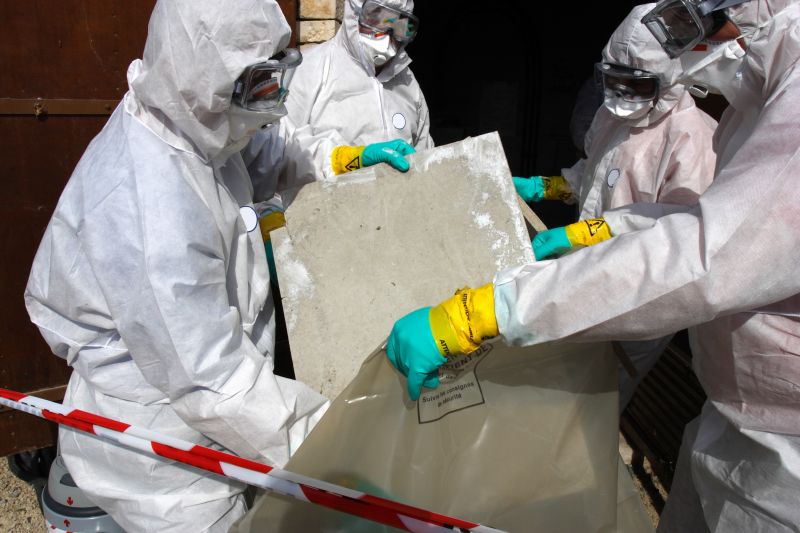Popular Asbestos Inspecting Products For Reliable Results
Discover widely used inspection tools designed to help you identify asbestos accurately and efficiently.
 When it comes to inspecting for asbestos, having the right tools and products is essential for ensuring safety and accuracy. Asbestos inspection products range from specialized sampling kits to protective gear, each designed to assist professionals and DIY enthusiasts in identifying potential asbestos-containing materials. These products are formulated to facilitate safe collection, analysis, and handling of suspect materials, helping users make informed decisions about further testing or remediation.
When it comes to inspecting for asbestos, having the right tools and products is essential for ensuring safety and accuracy. Asbestos inspection products range from specialized sampling kits to protective gear, each designed to assist professionals and DIY enthusiasts in identifying potential asbestos-containing materials. These products are formulated to facilitate safe collection, analysis, and handling of suspect materials, helping users make informed decisions about further testing or remediation.
Top Overall Option
Comprehensive Asbestos Sampling Kit
A versatile sampling kit designed to facilitate safe and effective collection of asbestos samples, including protective gear, detailed instructions, and sample containers for laboratory analysis.
Types of Products For Asbestos Inspectings
Asbestos Sampling Kits
Complete kits that include everything needed to collect and package asbestos samples safely for laboratory testing.
Personal Protective Equipment
Respirators, coveralls, gloves, and eye protection designed to prevent asbestos fiber exposure during inspections.
Handheld Microscopes
Portable microscopes to examine materials closely and identify possible asbestos fibers on-site.
Fiber Detectors
Portable devices that can detect airborne asbestos fibers, providing quick preliminary assessments.
Sampling Containers
Leak-proof containers specifically designed for storing asbestos samples securely for lab analysis.
Air Quality Monitors
Devices that measure airborne particulate levels to assess potential asbestos fiber concentrations.
Inspection Flashlights
Bright, portable lights to help inspect difficult-to-see areas for asbestos-containing materials.
Material Test Swabs
Specialized swabs for collecting surface samples from suspected asbestos materials.
Infrared Thermometers
Tools to identify temperature variations that may indicate hidden asbestos insulation or materials.
Surface Testing Kits
kits designed for testing surfaces for asbestos fibers, often including adhesive tapes or wipes.
Popular Choices
Widely used for collecting samples safely, these kits are popular among both professionals and DIY inspectors.
Essential PPE for reducing inhalation risks during asbestos inspections and sampling activities.
Protective clothing that prevents asbestos fibers from contaminating clothing and spreading.
Portable devices capable of detecting airborne asbestos fibers for quick on-site assessments.
Handheld magnifiers that assist in visually identifying suspect materials and fibers.
Professional analysis options for confirming asbestos presence based on collected samples.
Portable pumps used to draw air samples for laboratory analysis of asbestos fibers.
Sets designed for surface sampling, often used in conjunction with laboratory testing services.
Bright, battery-operated lights to facilitate thorough inspections in dark or hard-to-reach areas.
Disposable covers to prevent tracking asbestos fibers outside contaminated areas.
Proper sampling is a critical step in asbestos management, and the right sampling kits often include everything needed to collect samples safely. These kits typically feature durable containers, detailed instructions, and protective gloves to minimize exposure risks. Additionally, portable detection devices can provide preliminary assessments, offering quick insights into the presence of asbestos fibers. For more comprehensive analysis, sending samples to certified laboratories remains the most reliable approach.
Personal protective equipment (PPE) is equally important, as asbestos fibers pose health risks when disturbed. Respirators with appropriate filtration, disposable coveralls, and eye protection are standard components that help reduce exposure during inspection activities. For thorough inspections, magnifying glasses or handheld microscopes can assist in identifying fibers or material textures that may indicate asbestos presence. Combining these tools with proper safety protocols enhances the effectiveness of asbestos inspections.
Overall, selecting the right products for asbestos inspecting involves considering safety, accuracy, and ease of use. Whether conducting a simple DIY assessment or professional inspection, having a comprehensive set of tools ensures a safer process and more reliable results. Staying informed about the latest inspection products and techniques can help users navigate the complexities of asbestos detection with confidence.
Key Buying Considerations
- Safety features of PPE including filtration efficiency and comfort.
- Compatibility of sampling kits with laboratory testing requirements.
- Ease of use and clarity of instructions for DIY inspections.
- Portability and durability of handheld detection devices.
- Level of sensitivity and detection limits of fiber detectors.
- Material compatibility for surface testing swabs and tapes.
- Certification and compliance standards of sampling and testing products.
- Availability of detailed instructions and customer support.
- Cost-effectiveness relative to inspection scope and needs.
- Compatibility with existing safety gear or tools.
- Speed of preliminary assessment versus laboratory confirmation.
- Size and weight of portable devices for ease of transport.
- Ability to identify different types of asbestos fibers or just presence.
- Reusability or disposability of sampling and protective products.
- Storage and transportation considerations for collected samples.
